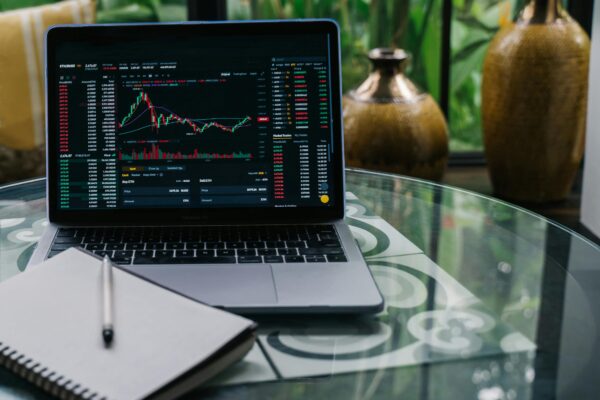
Is the S&P 500 Halal? A Guide for Muslim Investors
26 August 2025 7 min read


Haider Saleem
9 min read
Last updated on:
Day trading is one of the most misunderstood and hyped-up forms of investing. Social media is full of stories of overnight success, but the reality is very different. It’s not a side hustle, it’s not passive income but rather it’s a full-time, high-pressure profession where most people lose money. In this guide, we break down exactly what day trading is, how it works, and whether it’s halal according to Islamic principles.
We’ll also explain the difference between day trading, short selling, and swing trading – and explore the risks, rewards, and religious concerns associated with each. If you’ve ever considered jumping into day trading, read this first.
TLDR: Many scholars say day trading is halal, but there are differing views and it’s an ongoing debate.
It’s a skilled profession. Let’s break that down. It is “skilled” – so it takes time to learn and isn’t something you master overnight (or indeed something everyone is cut out for). It is a “profession” – so you can’t dabble with day-trading. You have to approach it with the same seriousness as with any profession.
Day traders look for stocks that move in a predictable way, which are usually traded in one day and are not held overnight.
Traders look for a stock “In Play”. These are stocks that have a high reward/risk opportunity intraday. There are many factors that make a stock a stock “In Play”, such as:
Day trader stocks also include stocks that:
So big companies such as Facebook or Apple which have a large number of shares are out of the question, as their daily price doesn’t usually move very much.
There are many different strategies that a day trader can use – we won’t go into these here.
A common misconception with day trading is that it is pretty straightforward and you have a 50% chance per trade of investing in a winner. After all, stock can only go up or down, right?
There is a lot more to to it than that.
If it were that simple, there’d be many more successful traders. But trading comes down to: experience, mindset, discipline, connection speed, access to powerful algorithms, access to market information, access to deep datasets, and much more.
You are trading against some of the smartest people in the world who likely have a faster connection than you and more data points. Everyone- from professionals in large firms (institutional traders) to novices (retail traders)- want to keep their money and take yours.
Aside from the debate on the sharia-compliance of day trading, anyone considering day-trading should think multiple times before embarking on this perilous journey. It is not for the faint-hearted- and most fail.
To understand day trading further, we’ll look at an example and a contrast. This includes:
Short selling is a type of day-trading and allows traders to profit from a falling stock price.
If prices are dropping, then day traders sell short to make a profit. The trader will:
This works because the broker wants their shares back, not your money.
Brokers allow you to sell their stocks at a drop as they prefer to hold their position for the long-term. They don’t care about short-term ups and downs. They will gain extra income by loaning their shares to short sellers and charging interest.
The risks here are that if a company goes bankrupt then you’ll owe the broker money.
If you often hold the stock overnight or for a few days, it’s not day trading anymore – it is now swing trading.
Unlike day trading, in swing trading, the trade usually has completed before the selling (meaning you own the share). In a day trade, you do not acquire full ownership when you purchase the share.
The style and mindset of investing between a day trader and swing trader is very different.
The type of stocks that you would day trade and swing trade are different:
So, to conclude, swing traders:
Day trading is a grey area in Islamic finance. Some scholars permit it if the trader takes full ownership of the shares before selling, while others view it as impermissible because rapid buying and selling may happen without true ownership. You can explore those views in our fatwa comparison.
Also note: the majority of contemporary scholars are of the view that share trading is permitted, regardless of whether the intention is capital gain or to receive the annual dividend – here’s a fatwa link.
But the specific issue with day trading is whether you are buying and selling without ownership. Let’s dig into this further.
Day trading involves trading in stocks and shares where you are selling the stock before the stock actually settles.
How does this happen?
Stocks complete the transaction at T+2. This means the stock is not in your ownership and possession until two business days after the transaction has gone through.
In Islam, it’s required that you have ownership (whether legal or beneficial) before a sale. It has been narrated that the Prophet Muhammad ﷺ “Do not sell that which you do not possess.” By not owning a possession, the seller has no power to guarantee it and hand it over to the purchaser, making it a gamble. Therefore, Islam may have some issues with day trading.
Remember – unlike day trading, in swing trading, the trade has usually completed before the selling so there are less issues with this style of investing.
We are sympathetic to day trading but are aware of the ongoing discussion. One of our IFG Forum muftis, Mufti Faraz Adam, is currently looking into this and we await to hear back. You can read our detailed view on our Fatwa Forum: Is Day Trading stocks and shares gambling?
The two reasons why we are sympathetic to day trading is that day trading is a necessary part of stock investing for the overall market to work and the T+2 model is seen as a market custom. If we have got comfortable with a bit of leniency around the debt element and haram income element to allow Muslims to participate in the market in the first place, it seems odd to then deny them access to one of the biggest styles of investing in this market due to a technicality.
The other reason is that the reason why the rule “do not sell that which you do not possess” came about in the first place is to avoid dispute (at least according to Shaykh Ibn Taymiyyah and Ibn Al Qayyim).
Given the relatively insignificant amount of times a company will actually go bust during the two-day period after you have bought it, the risk of a dispute arising in that remote case is, well, remote. Furthermore, even in situations like that, there are rules to govern what happens and the exchange will enforce these.
There are also clear views by scholars that it is permissible. IFG is sympathetic to these views (but do not take this as a fatwa).
Some IFG audience members have talked about the difficulty of screening and trading these types of shares. In one day or a few hours, a share can change from sharia to non-sharia compliant. We’ve written about how to screen halal stocks and we have an exclusive sharia screening course.
Intraday trading is another name for day trading, where trades are opened and closed within the same day. The same rulings apply: it may be halal if there is genuine ownership, but some scholars still disagree.
Share trading and day trading is seen as permissible by many – though there are differing views and ongoing research.
Ask yourself: do you want to trade with your money or do you want to invest with it? If it’s to invest, then don’t day trade.
Day trading is hard – it’s not a get-rich-quick scheme. It requires a lot of education and practice. But, it can be a lucrative way of making money. On average it takes six to eight months to make money. For others, it can be much longer or shorter. Don’t trade alone – it’s difficult.
You also need around £100k to start off with as you will want to only invest 1-2% of your full pot in each trade, but that 1-2% needs to be significant enough to make a a few hundred pound a day for this to make a living.
Practice using simulators. Why? Well, first you need to know what you are doing. But secondly, because of hotkeys. It’s a necessary skill for day traders to be quick using their keyboards to remove the need to use a mouse and keyboard. That’s how quick you need to work. Some simulators will charge you. However, if you’re serious then it’s worth it.
You can learn how to screen shares on the stock market for sharia-compliance here. Alternatively, you can use our platform Cur8 to access pre-vetted companies to invest in.
If you don’t want to day trade, we’d recommend:
If you want to learn more about investing, check our Halal Investing 101 Guides.
If you enjoyed this article, you can follow me on Twitter or LinkedIn. Share your thoughts with us too in the comments.

26 August 2025 7 min read

24 July 2025 15 min read

16 July 2025 5 min read
Leave a Reply